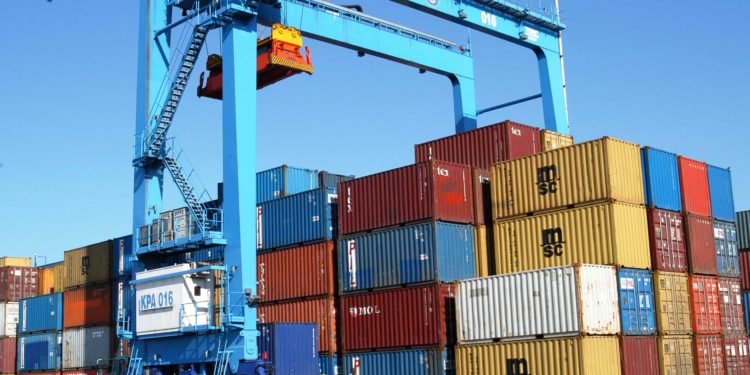An inter-agency task force has been created to monitor and mitigate effects of the corona virus on the business community in the country. This was after the newly appointed Industry and Trade Cabinet Secretary Ms Betty Maina met with representatives of the private sector to listen to their concerns on effects of the coronavirus on businesses in Kenya.
The regional paper of this week, The East African, reported that four big cargo ships that supply goods from China have failed to dock at Mombasa port for the second month in a row following the coronavirus outbreak, pointing to a possible surge in prices of consumer goods in the region.
East African Countries imports a wide range of goods from China including consumables, electronics, construction materials, vehicle spare parts, clothing, furniture, kitchenware, raw materials and machinery. Most Chinese factories are on lock-down as Beijing scrambles to contain the outbreak, disrupting supply chains across the world.
“The port of Mombasa receives three big dischargers (imports) from China under Evergreen Line and one COSCO ship on a monthly basis. These four ships have not called since the coronavirus effect in China,” the weekly paper quotes the Kenya Ports Authority managing director Daniel Manduku.
China Ocean Shipping Company (COSCO) is a Chinese State-owned shipping line. A study by the UK-based independent think tank, Overseas Development Institute (ODI), shows that Kenya, Tanzania, Rwanda, Burundi and Uganda are among the world’s 97 economies that are most exposed to a Chinese slowdown either directly or indirectly.
Kenya Airways has already lost more than $8 million in revenues after the loss-making national carrier suspended all flights to and from Guangzhou, China, with effect from January 31. A court order issued on recently suspended all the flights from China. Globally, the International Air Transport Association (IATA) forecast the industry is set to lose $29 billion worth of passenger revenues this year, of which $40 million will be linked to African airlines.
By the beginning of March, coronavirus infections had been confirmed in at least 55 countries, including three on the African continent – Algeria, Egypt and Nigeria.
Kenya Private Sector Alliance (Kepsa) has started engaging its members to calculate the projected economic impact of coronavirus in each sector. The collated input will inform the development of a rapid response mitigation plan to minimise the impact of the outbreak on the Kenyan economy.
It will also allow the private sector to measure the impact of the expected global slowdown of trade on Kenya.
Kepsa chief executive Carole Karuga said, in a recent statement, that her organisation was encouraged by Executive Order No 2 of 2020 issued by President Uhuru Kenyatta, which provides a platform to address emergency efforts on the outbreak.
“Kepsa will present collated members’ proposals during the quarterly engagement with the National Development Implementation and Communication Cabinet Committee (NDICC) roundtable chaired by interior Cabinet secretary Fred Matiang’i in early March and work with the government on economic mitigation actions,” said Karuga.
“Some of our private sector players with a critical reliance on imports from some of the affected regions are activating other supply chains and sourcing options to mitigate imminent disruptions before global trade settles back to normality,” she said.
Even as the current trend hurts local traders who source their merchandises from China and other affected countries, Maina said it presents an opportunity for them to diversify imports over and above boosting local supplies to counter sale of counterfeits.
For any feedback, contacts us via editorial@feaffa.com / info@feaffa.com; Mobile: +254703971679 / +254733780240





